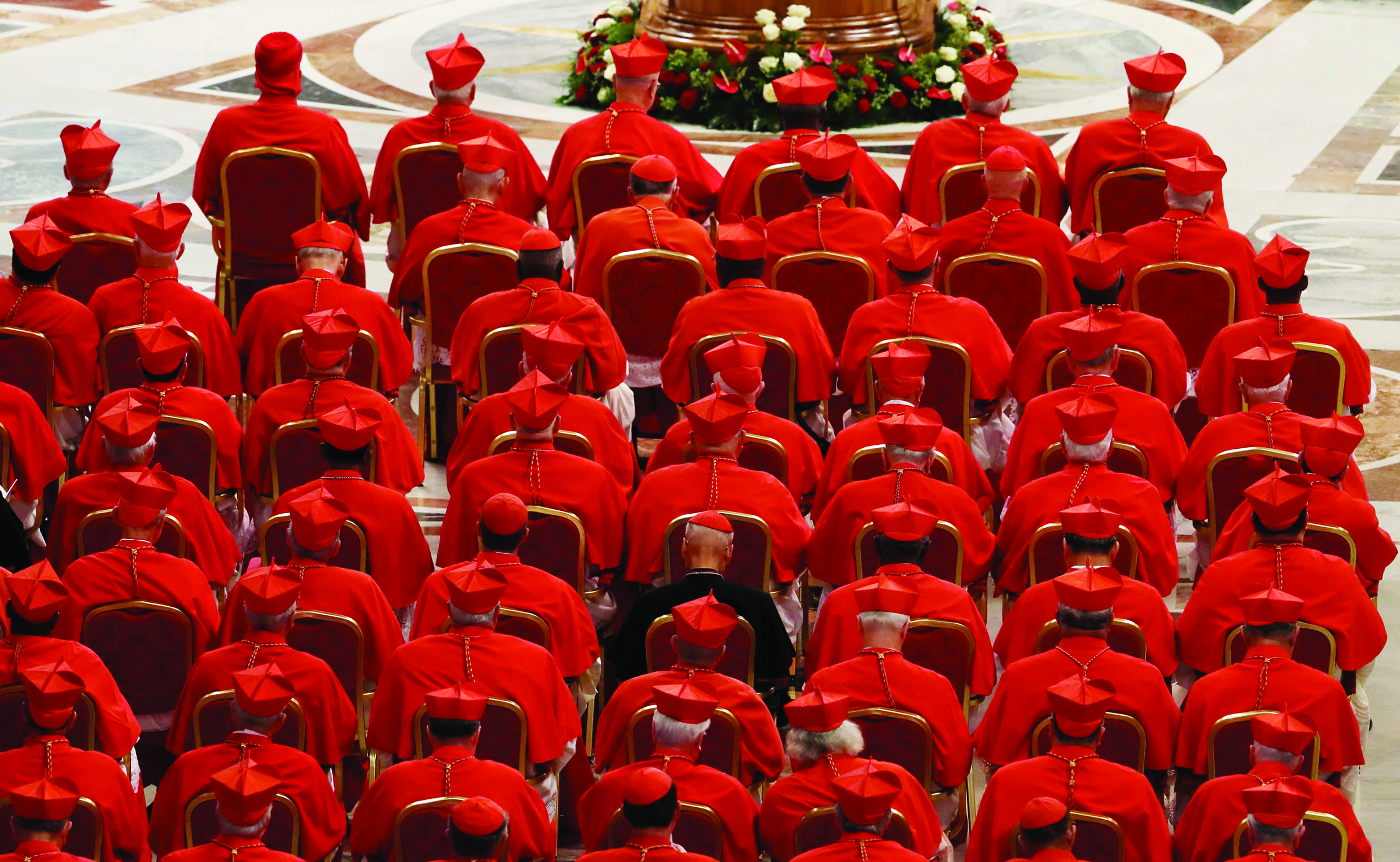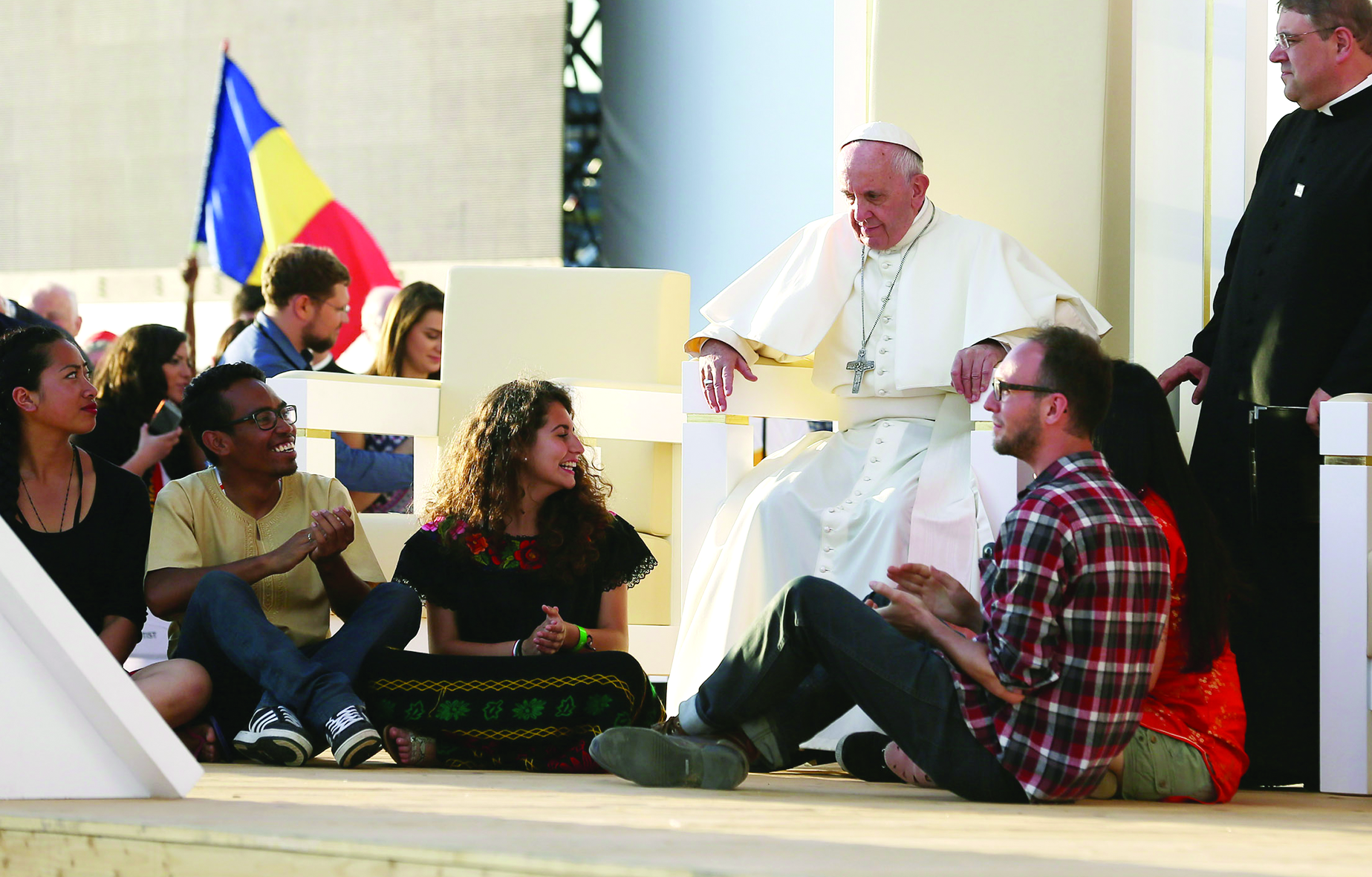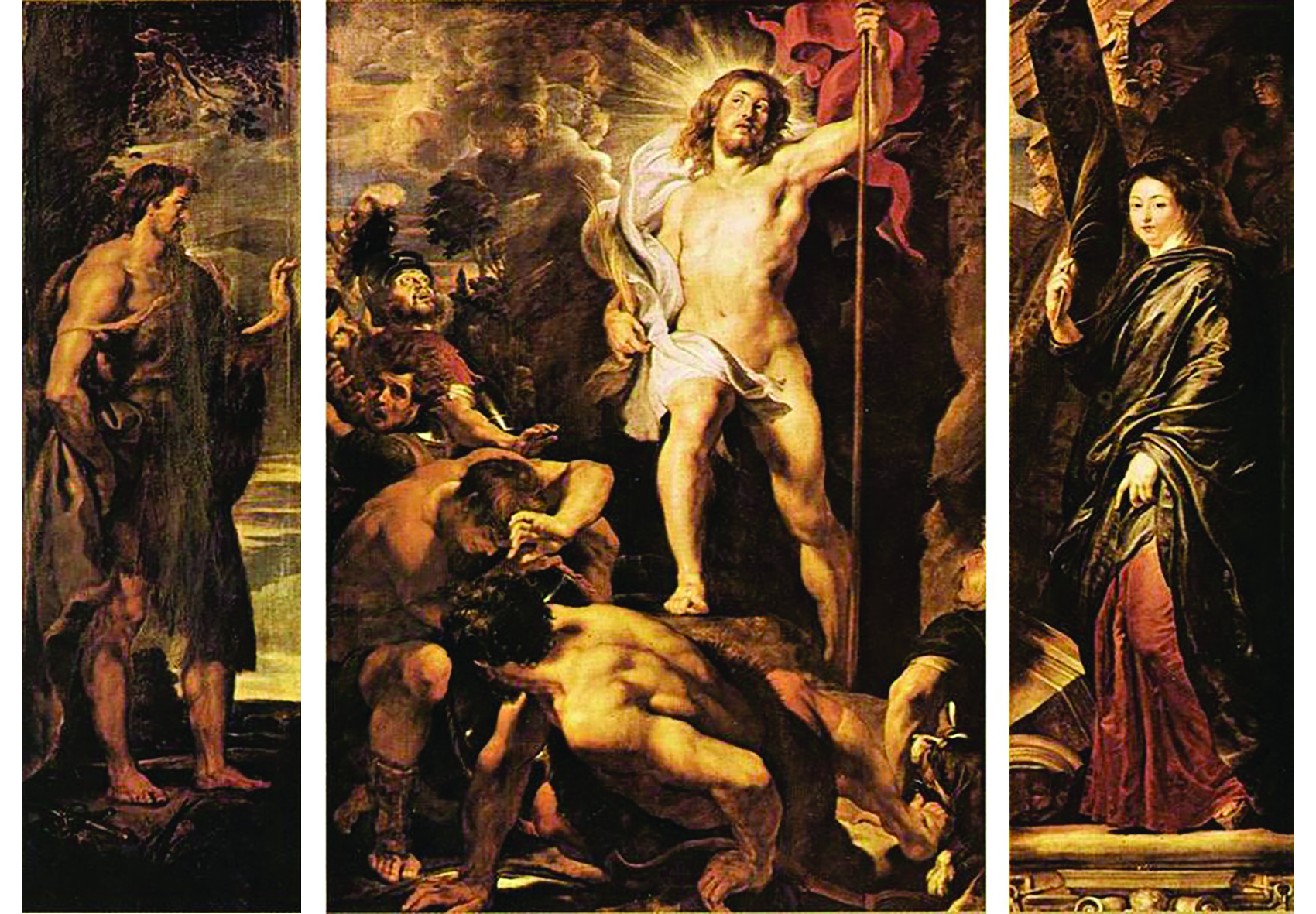Throughout large areas of the Middle East, the radical Islamic movement ISIS is killing innocent Christians. The Pope has now said that force may be used to stop this violence.
Pope Francis in recent weeks was again one of the only world leaders willing to give a voice to the Christians being slaughtered by Islamic radicals: “With pain, with much pain, I learned of the terrorist attacks today against two churches in the city of Lahore in Pakistan, which have resulted in numerous deaths and injuries,” Pope Francis said on March 15, a Sunday, at his midday Angelus prayer. “They are Christian churches. Christians are persecuted. Our brothers spill their blood only because they are Christians. As I assure you of my prayers for the victims and their families, I ask the Lord, beseech the Lord, source of all good, for the gift of peace and harmony to this country, that this persecution against Christians, that the world tries to hide, ends and there is peace.”
One of the churches bombed was Catholic; another was Protestant.
The Vicar of Christ spoke on behalf of both, just as he did for the 21 Coptic martyrs.
And now, the Vatican is actually urging an international coalition to intervene militarily against ISIS, calling upon both Western and Middle Eastern nations to act to stop this genocide.
ISIS in response is said to have threatened the Pope’s life. The Pope has shrugged off the threat, placing his life in God’s hands.
Still, this is the serious context for repeating the Pope’s request on the day he was elected: “Please don’t forget to pray for me.”
Vatican to UN: Authorize Military Force to Stop ISIS Genocide
Last summer, Pope Francis issued a stunning call for global action against ISIS, but stopped short of a demand for war. The pontiff carefully explained that the world needed to “stop the unjust aggressor,” that force might be required to do so, and that the proper venue for such action would be the United Nations. “One single nation cannot judge how he is to be stopped, how an unjust aggressor is to be stopped,” Francis told a plane full of reporters as he left South Korea. But he insisted that “it is legitimate to stop the unjust aggressor.”
On March 13, the second anniversary of Pope Francis’ election, the Vatican made it much more explicit. The world must come together in force to stop the genocides of ISIS, a Vatican official said.
“We have to stop this kind of genocide,” Italian Archbishop Silvano Tomasi, the Vatican’s representative in Geneva, said. “Otherwise, we’ll be crying out in the future about why we didn’t so something, why we allowed such a terrible tragedy to happen.”
Tomasi said that any anti-ISIS coalition has to include the Muslim states of the Middle East, and can’t simply be a “Western approach.”
He also said it should unfold under the aegis of the United Nations.
The call for force is striking, given that the Vatican traditionally has opposed military interventions in the Middle East, including the two US-led Gulf Wars.
It builds, however, on comments from Pope Francis that the use of force is “legitimate … to stop an unjust aggressor.”
“It will be up the United Nations and its member states, especially the Security Council, to determine the exact form of intervention necessary,” Tomasi said, “but some responsibility [to act] is clear.”
Needless to say, this statement is unusual for the Vatican, which almost always endorses conciliation and diplomacy over conflict. It’s a measure of just how radically dangerous this situation has become with ISIS, and how much death and destruction has resulted from its rapid expansion.
Speaking of rapid expansion, CIA Director John Brennan says that ISIS is now operating in 90 countries. The Islamic State had “snowballed” beyond Iraq and Syria, he said recently. “Left unchecked, the group would pose a serious danger not only to Syria and Iraq, but to the wider region and beyond, including the threat of attacks in the homelands of the United States and our partners,” Brennan told the Council on Foreign Relations in New York.
Former US President George H. W. Bush might have gone to the UN to build the kind of coalition the Vatican has called for (and did, in fact, put together such a coalition for an action that St. John Paul II opposed in 1991), but so far no Western nation has bothered to make the case for a global military intervention.
France has said that it will “raise the issue” at the next UN Security Council meeting in April, but that comes more than a year after ISIS began its sweep across Syria and Iraq, and nearly a year since they began genocidal campaigns against Assyrian Christians and Yazidis, among others.
The US actually has put together a coalition of Muslim nations to fight ISIS, but so far ineffectively. Barack Obama does not want to put ground troops in Iraq, but neither do his coalition partners, at least not without American participation in ground operations. Instead of going to the UN to bypass Congress on Iran, perhaps Obama would be better advised to go to the UN Security Council to find a more effective strategy than the one being used currently.
Bomb attacks on two churches on March 15 killed at least 14 people and wounded 68 more in Lahore, Pakistan. The twin attacks took place on churches only a few hundred yards apart from one another in one of the largest Christian neighborhoods of the city, Youhanabad. One of the churches was the Catholic church of St. John, the other was the Anglican Christ Church.
“These attacks have led people into the thought that they are unsafe anywhere,” said Sadaf Saddique, who heads the Good Shepherd Ministry in Pakistan, an outreach to exploited and at-risk children.
Speaking to Vatican Radio from Lahore, shortly after the attacks, Saddique, a lawyer, said, “We never thought that Youhanabad could be attacked, we never thought that people would dare to come into this place, and would attack such a big Christian town.”
The attacks in Lahore draw attention to concerns about the security of churches and Christian institutions in the country. Religious minorities in Pakistan face pervasive societal and institutional discrimination and the threat of violence, fuelled in part by expressions of religious hatred, or hate speech.
This situation is exacerbated by a culture of impunity and the unchecked influence of extremist groups.
Christians comprise roughly 2% of Pakistan’s more than 182 million people.











Facebook Comments